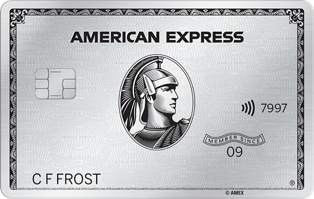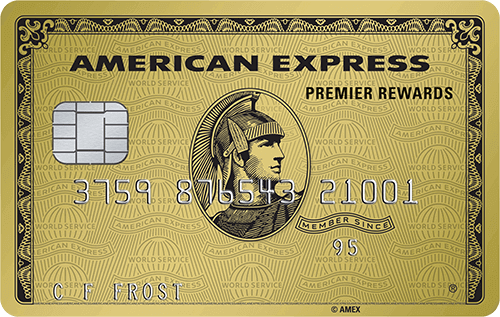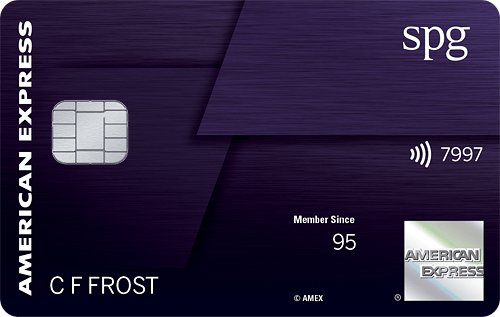- myFICO® Forums
- FICO Scoring and Other Credit Topics
- Understanding FICO® Scoring
- Re: Should I close my OLDEST CC?
- Subscribe to RSS Feed
- Mark Topic as New
- Mark Topic as Read
- Float this Topic for Current User
- Bookmark
- Subscribe
- Mute
- Printer Friendly Page
Should I close my OLDEST CC?
Is your credit card giving you the perks you want?
Browse credit cards from a variety of issuers to see if there's a better card for you.
- Mark as New
- Bookmark
- Subscribe
- Mute
- Subscribe to RSS Feed
- Permalink
- Report Inappropriate Content
Re: Should I close my OLDEST CC?
@Anonymous wrote:It looks like your oldest CC is 3+ years older than your next oldest. Based on that, I'd keep it open. If not, in 10 years you would probably experience some sort of score drop (hard to say how much) when your AoOA drops from 15 years to 12 years.
Is there data points for a score drop if you have at least 10 years of AoOA? Didn't you achieve a perfect 850 with an AAoA of only 7 years? What was your AoOA when you had that score?
- Mark as New
- Bookmark
- Subscribe
- Mute
- Subscribe to RSS Feed
- Permalink
- Report Inappropriate Content
Re: Should I close my OLDEST CC?
Put it in the sock drawer. Doing the math, I'd keep it just because of it's age relative to your other cards and your total credit history.
- Mark as New
- Bookmark
- Subscribe
- Mute
- Subscribe to RSS Feed
- Permalink
- Report Inappropriate Content
Re: Should I close my OLDEST CC?
@Anonymous wrote:FANTASIC NEWS! THATS EXACTLY WHAT I WANTED TO HEAR!, I mean its a loop hole I think we all miss. You make complete sense on what your saying...You're already gonna pay the bills anyways why not just set up them on Auto and reek the points! Thanks my Friend!!
You're welcome. I'm always learning new things as well, if I knew what I know today 5-10 years ago, I'd have made some smarter choices and been in a completely different situation today. But as always, live and learn!

Scores - All bureaus 770 +
TCL - Est. $410K
- Mark as New
- Bookmark
- Subscribe
- Mute
- Subscribe to RSS Feed
- Permalink
- Report Inappropriate Content
Re: Should I close my OLDEST CC?
@Anonymous wrote:FANTASIC NEWS! THATS EXACTLY WHAT I WANTED TO HEAR!, I mean its a loop hole I think we all miss. You make complete sense on what your saying...You're already gonna pay the bills anyways why not just set up them on Auto and reek the points! Thanks my Friend!!
It's not exactly a loop hole (and we certainly don't all miss it!). The question comes up regularly and it always surprises me why people think paying a bill with a credit card is any different from making any other on-line purchase with a credit card. (Or even sending in the bill with the cc information filled in...)
- Mark as New
- Bookmark
- Subscribe
- Mute
- Subscribe to RSS Feed
- Permalink
- Report Inappropriate Content
Re: Should I close my OLDEST CC?
@xaximus wrote:
That's a good idea. I have a small checklist that I go through if I wanna keep a card or close -
1 - AF or no AF
2 - any special benefits that no other card I currently have provides?
3 - age
4 - can it be pc'd or combined
5 - credit limit and how often it has grown
I usually go through that checklist - if it has an AF, that alone is an indication that I would like to PC or close it. I always mention that when I'm speaking to a CSR. I have been able to get the AF waived before.
+ 1,000
If no AF, NO Harm No Foul. Keep the card and let the good payment history BUUIIILLLDDDD!












- Mark as New
- Bookmark
- Subscribe
- Mute
- Subscribe to RSS Feed
- Permalink
- Report Inappropriate Content
Re: Should I close my OLDEST CC?
@rbentley wrote:
@Anonymous wrote:It looks like your oldest CC is 3+ years older than your next oldest. Based on that, I'd keep it open. If not, in 10 years you would probably experience some sort of score drop (hard to say how much) when your AoOA drops from 15 years to 12 years.
Is there data points for a score drop if you have at least 10 years of AoOA? Didn't you achieve a perfect 850 with an AAoA of only 7 years? What was your AoOA when you had that score?
BBS is talking about AoOA (Age of Oldest Account). That's a very different scoring factor from AAoA (Average Age of Accounts).
It's well established that people continue to get a benefit as their Age of Oldest continues to go up well past 12. My profile was perfect (zero inquiries, Age of Youngest Account > 13 months, several cards, loans at < 8% utilization, AZEO, etc.) but I did not hit 850 until my oldest account was 17 years old. Even then that only happened at one bureau. My guess is that it's possible to get scoring benefit (for people with scores less than 850) until at least an Age of Oldest of 20.
- Mark as New
- Bookmark
- Subscribe
- Mute
- Subscribe to RSS Feed
- Permalink
- Report Inappropriate Content
Re: Should I close my OLDEST CC?
- Mark as New
- Bookmark
- Subscribe
- Mute
- Subscribe to RSS Feed
- Permalink
- Report Inappropriate Content
Re: Should I close my OLDEST CC?
Hi RB. The thing that misled me was your emphasis on his AAoA. It sounded like you didn't realize that the scoring benefit one might get from AoOA is completely separate from whatever you might get from AAoA. Therefore whatever the breakpoints might be for AAoA ("Didn't you achieve a perfect 850 with an AAoA of only 7 years?") wouldn't allow you to infer what they are for AoOA. To be honest it still sounds like you think that you can infer one from the other.
I do feel like I gave you some feedback about AoOA specifically, but it sounds like you'd like to hear directly from BBS, so I will look forward to hearing your conversation with him.
- Mark as New
- Bookmark
- Subscribe
- Mute
- Subscribe to RSS Feed
- Permalink
- Report Inappropriate Content
Re: Should I close my OLDEST CC?
- Mark as New
- Bookmark
- Subscribe
- Mute
- Subscribe to RSS Feed
- Permalink
- Report Inappropriate Content
Re: Should I close my OLDEST CC?
No problem, buddy!
The thing is that we just don't have a lot of test data on this. What we'd need is skilled FICO testers (people who know how to carefully control for other factors and who really like this stuff as a hobby) but who also have an oldest account that is (say) 18 years old (and closed), about to fall off, and who's next oldest account is (say) 13 years old -- and who have had enough foresight to carefully pull their scores just before and just after the 18 year old account fell off. Even still we'd need to somehow take into account the drop in AAoA.
It's really hard to find such a person, because typically experienced FICO junkies don't have an 18 year old closed account on their report that will soon be falling off and which is their oldest account.
What we can do is make some provisional inferences based on when people get an 850, and then assume that the AoOA benefit extends at least a few years further than that (for people with scores under 849).
Another elegant testing device would be for a person with an AAoA > 8.0 and an AoOA of 13 to add an AU account of precisely 18 years. If there was an immediate but fairly small increase that would support your conjecture that AoOA benefit is small after 13 (say).